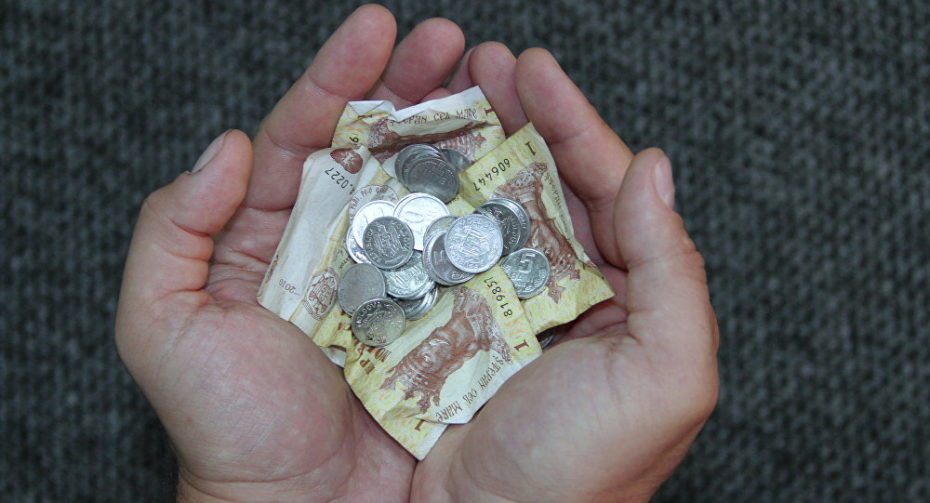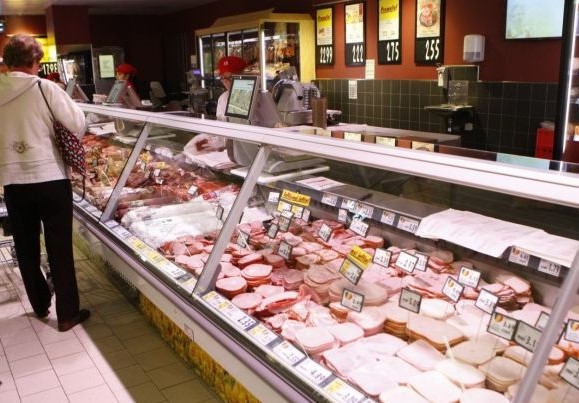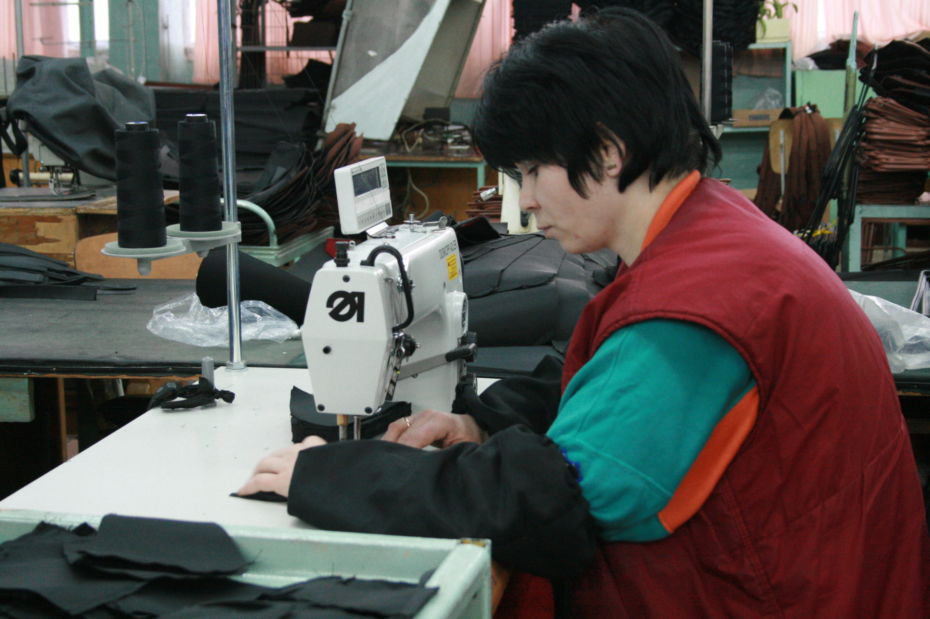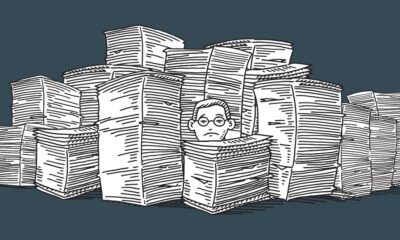Economy
Study results: Moldovan salaries cover not even a half of the costs needed for a decent life

The Friedrich-Ebert-Stiftung Moldova Foundation, in partnership with the Clean Clothes Campaign and Platzforma have issued the results of the case study performed by them in the textile industry. The study titled “Living wages in the Republic of Moldova. Case study: textile industry” presented the concept of living wage by calculating how much money a worker in the textile industry and his family needs for a decent living.
The results of the case study are especially valuable for 3 main reasons: it is the first such kind of study in the Republic of Moldova. It includes a new term for the Moldovan society – the living wage, taken into consideration that the Moldovan government operates only with the terms of minimum and average wage in all national statistics. The conclusions of the study are applicable for any employee of any other sector of the economy, displaying a more realistic situation regarding the incomes and expenses of an average Moldovan citizen.
What is the difference between the minimum wage and the living wage?
According to Lilia Nenescu, an anthropologist and the co-author of the study, the living salary has never yet been calculated in Moldova. “Currently, we operate with other concepts such as minimum wage, average salary or the poverty threshold. Beside the fact that the living wage calculates the cost of living, this is also a guaranteed right by the Universal Declaration of Human Rights and the Constitution of our country, which states that citizens have the right to a decent living. The minimum calculated wage in the Republic of Moldova does not cover the expenses of a decent living,” reported Nenescu.
In comparison to the minimum wage that is set by the government and means the lowest wage an employer may legally pay its workers, the living wage is the amount of money calculated as being sufficient for an employee and his family to cover basic costs of living, being adjusted to the location, household size and to the inflation rate. Another important difference between these two concepts is that the minimum wage is always displayed as a gross amount, while the living wage – as a net amount, including a saving of 10% for unexpected expenses. Moreover, the living wage can be only in the monetary form, without any vouchers or goods as payment. “If the worker doesn’t receive his salary in the monetary form, he is not free to choose on what to spend it,” specified Lilia Nenescu.

Photo source: adevarul.ro
How was the living wage calculated?
For one month, the experts collected data on food prices from 10 workers from a village and 10 more workers from a city, in order to track the price fluctuations. Afterwards, they have developed a nutritious food basket of 3,000 calories, adapted to the local specificities, without including tobacco, alcohol or processed foods. “The participants noted down the price for each product as they paid. After collecting the data, we calculated the average price of the products. Based on these figures, the costs of a nutritional diet for a day were calculated. Subsequently, the food expenses for 30 days, for a family of 3 members were determined,” as the authors of the study explained. The same method was applied for the non-food expenses. By adding them up to the food expenses, the total amount of the living wage was obtained.
What is the conclusion of the study?
As the study results showed, there are seven basic categories of needs considered for the living wage: food, housing (rent, maintenance bills), health, education, culture, clothing and transport. The ratio between the food and non-food expenditure (clothing, maintenance bills, transport, etc.) is 43.9% to 56.1%. The living wage estimated by the authors of the study amounts to at least 12306.8 lei for urban zones and 11359.6 lei for the rural ones. “The minimum living wage in the textile industry in the Republic of Moldova should be at least 11833.2 lei,” deduced the study authors.
Therefore, the average gross salary in the textile industry in the Republic of Moldova in the third quarter of 2018 was 6 027 lei, whereas in the footwear industry it reached only 5242.8 lei, according to the National Statistical Bureau (NBS). That means a net average salary of 4776.86 and 4159.22 respectively for a person that has one child. It covers less than half of the minimum living wage calculated in the conducted study.
Moreover, the average living costs per person displayed on the NSB of Moldova correspond to an amount of 2437.5 lei for the third quarter of 2018. A closer analysis of the respective amount reveals that such expenses as rent are not included in the amount, therefore people in the Republic of Moldova are supposed to pay only for the maintenance and furnishing of their house, which represent a share of 22.8% of the total amount. Even more unrealistic seem the calculated costs for studies – 0.4% of the total amount, this cost being even lower than the cost of agreement – 1.7%. Thus, it becomes clear that the calculation of the minimum legal wage and of the estimation of living costs in the Republic of Moldova are subject to underestimation and don’t correspond to the real existing situation in the country.
Why is the living wage so important?
“We have studied the textile industry precisely because we are already part of an effort to improve working conditions in this area. Living wages are also an advocacy tool that we want to include in our efforts of raising the wages in this sector. It is necessary to measure living wages so that we can present these figures to the brands and show them what the real expenses of workers from countries like Moldova are,” mentioned the activist Vitalie Sprânceană, one of the authors of the study.

There is no official methodology in the Republic of Moldova of calculating a salary level that reflects real spending of a person or a family for a normal and decent life. The lack of a decent living salary means that many workers in different sectors of the economy are forced to work additionally for extra gain or to combine more jobs, as the Platzforma description of the project stated. Because Moldovans do not have enough money, they have a poorer menu, wear the same clothes for years and forget about vacation. “The priorities are the children’s education and the maintenance bills, all that remains is for food and lastly for clothes,” answered a pedestrian interviewed by TV8.
“Living salary is a new concept for the Republic of Moldova, where the minimum wage or average salary concepts are used. From the study, however, we understand that these notions do not even cover the costs of a decent living. This concept of living wage fits well into our mission and we will continue to promote it,” says Veaceslav Paladi, the Programs’ Coordinator at the Friedrich-Ebert-Stiftung Foundation in Moldova.
Featured photo: sputnik.md
Society
“They are not needy, but they need help”. How Moldovan volunteers try to create a safe environment for the Ukrainian refugees

At the Government’s ground floor, the phones ring constantly, the laptop screens never reach standby. In one corner of the room there is a logistics planning meeting, someone has a call on Zoom with partners and donors, someone else finally managed to take a cookie and make some coffee. Everyone is exhausted and have sleepy red eyes, but the volunteers still have a lot of energy and dedication to help in creating a safe place for the Ukrainian refugees.
“It’s like a continuous bustle just so you won’t read the news. You get home sometimes and you don’t have time for news, and that somehow helps. It’s a kind of solidarity and mutual support,” says Vlada Ciobanu, volunteer responsible for communication and fundraising.
The volunteers group was formed from the very first day of war. A Facebook page was created, where all types of messages immediately started to flow: “I offer accommodation”, “I want to help”, “I want to get involved”, “Where can I bring the products?”, “I have a car and I can go to the customs”. Soon, the authorities also started asking for volunteers’ support. Now they all work together, coordinate activities and try to find solutions to the most difficult problems.
Is accommodation needed for 10, 200 or 800 people? Do you need transportation to the customs? Does anyone want to deliver 3 tons of apples and does not know where? Do you need medicine or mobile toilets? All these questions require prompt answers and actions. Blankets, sheets, diapers, hygiene products, food, clothes – people bring everything, and someone needs to quickly find ways of delivering them to those who need them.
Sometimes this collaboration is difficult, involves a lot of bureaucracy, and it can be difficult to get answers on time. “Republic of Moldova has never faced such a large influx of refugees and, probably because nobody thought this could happen, a mechanism of this kind of crisis has not been developed. Due to the absence of such a mechanism that the state should have created, we, the volunteers, intervened and tried to help in a practical way for the spontaneous and on the sport solutions of the problems,” mentions Ecaterina Luțișina, volunteer responsible for the refugees’ accommodation.
Ana Maria Popa, one of the founders of the group “Help Ukrainians in Moldova/SOS Українці Молдовa” says that the toughest thing is to find time and have a clear mind in managing different procedures, although things still happen somehow naturally. Everyone is ready to intervene and help, to take on more responsibilities and to act immediately when needed. The biggest challenges arise when it is necessary to accommodate large families, people with special needs, for which alternative solutions must be identified.
Goods and donations
The volunteers try to cope with the high flow of requests for both accommodation and products of all kinds. “It came to me as a shock and a panic when I found out that both mothers who are now in Ukraine, as well as those who found refuge in our country are losing their milk because of stress. We are trying to fill an enormous need for milk powder, for which the demand is high and the stocks are decreasing”, says Steliana, the volunteer responsible for the distribution of goods from the donation centers.
Several centers have been set up to collect donations in all regions of Chisinau, and volunteers are redirecting the goods to where the refugees are. A system for processing and monitoring donations has already been established, while the volunteer drivers take over the order only according to a unique code.
Volunteers from the collection centers also do the inventory – the donated goods and the distributed goods. The rest is transported to Vatra deposit, from where it is distributed to the placement centers where more than 50 refugees are housed.
When they want to donate goods, but they don’t know what would be needed, people are urged to put themselves in the position of refugees and ask themselves what would they need most if they wake up overnight and have to hurriedly pack their bags and run away. Steliana wants to emphasise that “these people are not needy, but these people need help. They did not choose to end up in this situation.”
Furthermore, the volunteer Cristina Sîrbu seeks to identify producers and negotiate prices for products needed by refugees, thus mediating the procurement process for NGOs with which she collaborates, such as Caritas, World Children’s Fund, Polish Solidarity Fund, Lifting hands, Peace Corps and others.
One of the challenges she is facing now is the identifying a mattress manufacturer in the West, because the Moldovan mattress manufacturer that has been helping so far no longer has polyurethane, a raw material usually imported from Russia and Ukraine.
Cristina also needs to find solutions for the needs of the volunteer groups – phones, laptops, gsm connection and internet for a good carrying out of activities.
Hate messages
The most difficult thing for the communication team is to manage the hate messages on the social networks, which started to appear more often. “Even if there is some sort of dissatisfaction from the Ukrainian refugees and those who offer help, we live now in a very diverse society, there are different kind of people, and we act very differently under stress,” said Vlada Ciobanu.
Translation by Cătălina Bîrsanu
Important
#WorldForUkraine – a map that shows the magnitude of the world’s actions against Russian aggression

The international community and volunteers from all over te world have launched #WorldForUkraine as a platform that shows the magnitude of the world’s actions against the Russian aggression. In a digital world – it is an interactive map of public support of Ukrainians under the hashtag #WorldForUkraine – rallies, flash mobs, protests around the world. In the physical dimension – it is your opportunity to take to the streets and declare: “No to Putin’s aggression, no to war.”
„Today, along with the political and military support, emotional connection with the civilized world and truthful information are extremely important for Ukraine. The power to do it is in your hands. Join the #WorldForUkraine project and contribute to the victorious battle against the bloodshed inflicted on Ukraine by the aggression of the Russian Federation”, says the „about the project” section of the platform.
Go to the streets — Tell people — Connect and Unite — Become POWERFUL
Volunteers have launched #WorldForUkraine as a platform that shows the magnitude of the world’s actions against Russian aggression. In digital world – it is an INTERACTIVE MAP of public support of Ukrainians worldforukraine.net under the hashtag #WorldForUkraine – rallies, flash mobs, protests around the world. In the physical dimension – it is your opportunity to take to the streets and declare: “No to Putin’s aggression, no to war.” There you may find information about past and future rallies in your city in support of Ukraine. This is a permanent platform for Ukrainian diaspora and people all over the world concerned about the situation in Ukraine.
So here’s a couple of things you could do yourself to help:
* if there is a political rally in your city, then participate in it and write about it on social media with geolocation and the hashtag #WorldForUkraine
* if there are no rallies nearby, organize one in support of Ukraine yourself, write about it on social media with geolocation adding the hashtag #WorldForUkraine
The map will add information about gathering by #WorldForUkraine AUTOMATICALLY
Your voice now stronger THAN ever
All rallies are already here: https://worldforukraine.net
Important
How is Moldova managing the big influx of Ukrainian refugees? The authorities’ plan, explained

From 24th to 28th of February, 71 359 Ukrainian citizens entered the territory of Republic of Moldova. 33 173 of them left the country. As of this moment, there are 38 186 Ukrainian citizens in Moldova, who have arrived over the past 100 hours.
The Moldovan people and authorities have organized themselves quickly from the first day of war between Russia and Ukraine. However, in the event of a prolonged armed conflict and a continuous influx of Ukrainian refugees, the efforts and donations need to be efficiently managed. Thus, we inquired about Moldova’s long-term plan and the state’s capacity to receive, host, and treat a bigger number of refugees.
On February 26th, the Ministry of Labor and Social Protection of Moldova approved the Regulation of organization and functioning of the temporary Placement Center for refugees and the staffing and expenditure rules. According to the Regulation, the Centers will have the capacity of temporary hosting and feeding at least 20 persons, for a maximum of 3 months, with the possibility of extending this period. The Centers will also offer legal, social, psychological, and primary medical consultations to the refugees. The Center’s activity will be financed from budget allocations, under Article 19 of Provision no. 1 of the Exceptional Situations Commission from February 24th, 2022, and from other sources of funding that do not contravene applicable law.
The Ministry of Inner Affairs and the Government of Moldova facilitated the organization of the volunteers’ group “Moldova for Peace”. Its purpose is to receive, offer assistance and accommodation to the Ukrainian refugees. The group is still working on creating a structure, registering and contacting volunteers, etc. It does not activate under a legal umbrella.
Lilia Nenescu, one of the “Moldova for Peace” volunteers, said that the group consists of over 20 people. Other 1700 registered to volunteer by filling in this form, which is still available. The group consists of several departments:
The volunteers’ department. Its members act as fixers: they’re responsible for connecting the people in need of assistance with the appropriate department. Some of the volunteers are located in the customs points. “The Ministry of Inner Affairs sends us every day the list of the customs points where our assistance is needed, and we mobilize the volunteers”, says Lilia Nenescu.
The Goods Department manages all the goods donated by the Moldavian citizens. The donations are separated into categories: non-perishable foods and non-food supplies. The volunteers of this department sort the goods into packages to be distributed.
The Government intends to collect all the donations in four locations. The National Agency for Food Safety and the National Agency for Public Health will ensure mechanisms to confirm that all the deposited goods comply with safety and quality regulations.
The Service Department operates in 4 directions and needs the volunteer involvement of specialists in psychology, legal assistance (the majority of the refugees only have Ukrainian ID and birth certificates of their children); medical assistance; translation (a part of the refugees are not Ukrainian citizens).
According to Elena Mudrîi, the spokesperson of the Ministry of Health, so far there is no data about the number of Covid-19 positive refugees. She only mentioned two cases that needed outpatient medical assistance: a pregnant woman and the mother of a 4-day-old child.
The Accommodation Department. The volunteers are waiting for the centralized and updated information from the Ministry of Labor about the institutions offering accommodation, besides the houses offered by individuals.
The Transport Department consists of drivers organized in groups. They receive notifications about the number of people who need transportation from the customs points to the asylum centers for refugees.
The municipal authorities of Chișinău announced that the Ukrainian children refugees from the capital city will be enrolled in educational institutions. The authorities also intend to create Day-Care Centers for children, where they will be engaged in educational activities and will receive psychological assistance. Besides, the refugees from the municipal temporary accommodation centers receive individual and group counseling.
In addition to this effort, a group of volunteers consisting of Ana Gurău, Ana Popapa, and Andrei Lutenco developed, with the help of Cristian Coșneanu, the UArefugees platform, synchronized with the responses from this form. On the first day, 943 people offered their help using the form, and 110 people asked for help. According to Anna Gurău, the volunteers communicate with the Government in order to update the platform with the missing data.
Translation from Romanian by Natalia Graur

























